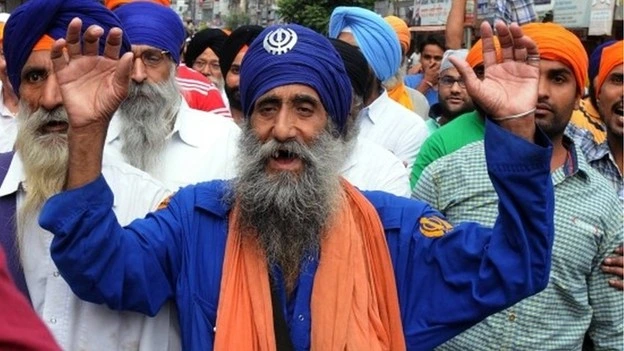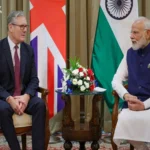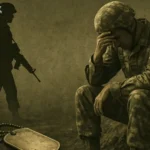The Punjabi Suba demand is a sad and convoluted tale, which can be labelled as one of the greatest betrayals in the history of post-independence India, a betrayal which caused irreconcilable fear between the Sikhs and the Indian government. Having fought in the freedom struggle and been on the receiving end of the worst experiences of Partition, Sikhs, in the years after independence 1947, had hoped that their cultural, linguistic and religious difference would be acknowledged in the new Indian union. The topmost of their demands was simple and constitutional, i.e., the establishment of their state speaking Punjabi, a state that would protect their language, traditions, and distinctive identity.
This was in tandem with the suggestions of States Reorganization Commission which recognized the principle of linguistic states as being an indication of the diverse nature of India. What happened to the Punjabi Suba demand was however a tale of a logical jam, mistrust and deceit. The Sikh demand instead of being treated as equal to the other linguistic movements in other states, viz, Andhra Pradesh, Tamil Nadu, Karnataka and Bengal was accorded inferior status by the central government almost as a secessionist communal and even as potentially dangerous phenomenon. This description was unfaithful towards the non-violent, democratic spirit of Punjabi Suba movement and prepared the foundation of a deep alienation which still continues to influence Sikh-Indian relations with the state.
Assurance has also been made in the early nineteen fifties when prime minister, Jawaharlal Nehru went to meet Akali leader Master Tara Singh that states in India will be reorganized on a linguistic basis, such as Punjabi. This was not just a promise on paper, it was based on the bigger picture held by the Congress Party of acknowledging the linguistic diversity of India. However, in 1956, with the enactment of the States Reorganization Act, it came as a shocking revelation that Punjabi was left out in this recipe. Contrary to that, the needs of Tamils, Telugus, Bengalis Indian and so on were addressed by letting them have their own states that were divided to have the wordling and cultural identity of these people.
The Congress government kept every trick in the book to smear the demand of Punjabi Suba during 1950s and 1960s. Such top leaders as Morarji Desai who subsequently took over prime minister ship openly charged that the Akali Dal was seeking to achieve a theocratic state in the guise of a nationalist linguistic demand. Such accusations are not based on reality. The demand of Punjabi Suba was deeply rooted in language, culture, but not on religion. Their leadership always stressed that they wanted the same linguistic reorganization like the rest of the regions but not a special religious homeland. The jaundiced use of the Congress Party of the discourse contributed towards communalization of the issue in the national imagination.
The national census which was perhaps the worst manipulation came. Not only was the Punjab census of 1961 rigged to give the impression that Punjabi did not have a majority in its own homeland, the Punjab census of 1951 was also engineered in the same way as well. Most Hindus in Punjab despite speaking Punjabi at home and in the market had with great pressure and fear mongering classified Hindi as their mother tongue. Led by the Congress leaders and rightwing Hindu activist groups, they reasoned that treating Punjabi as their own language would be beneficial to the Sikh movement and would sever Hindu unity. This was extremely insincere propaganda, the results of which were ridiculous, in a state where disease among people was addressed primarily in Punjabi by the vast majority people despite the religion to which they belonged, the census declared the possibility of reverse.
The Sikh did not counter it with violence or subversion. Rather, they initiated a prolonged peaceful struggle led by Master Tara Singh and after him Sant Fateh Singh which was founded on civil defiance and mass action. Tens of thousands of willing Sikhs were arrested in a splendid show of nonviolent defiance, in a more echo of Gandhian practices which were supposed to have influenced free India. More than 57,000 Sikhs were imprisoned in the year 1960 alone, because they were taking part in non-violent Punjabi Suba agitations. Nevertheless, the government reaction was violent and dismissive despite this outlandish restraint and self-control. New Delhi preferred repression and propaganda instead of acknowledging democratic legitimacy of the demands of the protestors.
When finally, packed off in 1966 under Prime Minister Indira Gandhi, it was done in such a grudging, piecemeal way, that the triumph just seemed like defeat. To start with, the new Punjab state was sub-carved into three: Haryana was formed as a new state in Hindi-speaking belt and majority of the Punjabi speaking hilly belts were given to the state of Himachal Pradesh. This amputation of the territorial and cultural integrity of Punjab was a sort of punishment at seeking a linguistic right. Second, Chandigarh, the city constructed at great efforts to become capital of Punjab, turned into Union Territory to be shared with Haryana. The Chandigarh is still a dispute to date and still can be viewed as the meddling hand of the Centre at things in the state of Punjab. Third and, unfortunately, the most devastating of all, the state lost its control over its rivers waters and gave it to a central government. Ravi Beas water controversy implied that Punjab will no longer be blessed by its rivers and water as an economic sustenance.
Therefore, although the Congress government might have pointed out that Punjabi Suba had come into existence, the fact is that this commitment had been delivered in such compromising, mutilated and humiliating fashion that Sikhs felt victimized in an even greater proportion. The snatching by Chandigarh, the carving out of the Punjabi speaking lands, embezzlement of the river waters and deprivation of the central government involvement at every time took away any dim hope that Sikhs would ever be treated with any autonomy and dignity of the Indian union.
The bitter feelings spawned by such happenings never dissipated at the end of the Punjabi Suba movement but rather paved the way to even more radical demands in the later decades. Such hostile reception to the most modest democratic demands gradually led many Sikhs to the conclusion that maybe the Indian state would never actually accept the Sikh identity as self-governing and legal. This historic malice was a major influence in the formation of the Khalistan movement in 1980s. Younger Sikh activists were becoming more and more convinced that constitutional means or peaceful struggle did not defend the rights and dignity of Sikh undersigned. Instead, the behavior of the state in the Punjabi Suba episode suggested a hunch that Sikhs would always be the second-grade citizens of India and their hopes and ideals were to be destroyed by the elements of suspicion and bad will.
The promise of freedom and liberation of the Punjabi Suba struggle failed, its hope was crushed, and what followed to feed the alienation further were the subsequent events, i.e., the 1984 Operation Blue Star, the anti-Sikh pogrom, and the militarization of Punjab, all of which could be traced back to the promise and hopes of the Punjabi Suba. The fulfilment of the promise of the putting of Punjabi Suba was not simply about repaying late the promise of granting a state-for it was the act of deliberate subversion of the belief of a people in the Indian constitutional order. A scar is still hurting in the Sikh psyche which it will never forget, and that tells the Sikhs how much they paid to believe in promises that were not made to be fulfilled.







